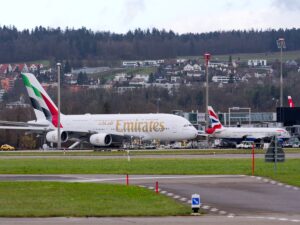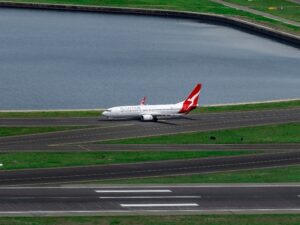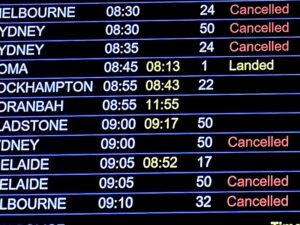
The Australian Competition & Consumer Commission (ACCC) is taking Qantas to court, alleging the airline continued to sell tickets on more than 8,000 flights it had already cancelled.
The ACCC also claims Qantas failed to notify customers with existing tickets that it had cancelled their flights for up to 47 days. It says that Qantas did not inform customers of the cancellations or update its “Manage Booking” page to reflect the cancellation for two days or more. On average, the ACCC says the delay was approximately 18 days and that this affected around 70% of cancelled flights between May and July 2022.
The ACCC regards this false, misleading or deceptive conduct in breach of Australian Consumer Law.
“We allege that Qantas’ conduct in continuing to sell tickets to cancelled flights, and not updating ticketholders about cancelled flights, left customers with less time to make alternative arrangements and may have led to them paying higher prices to fly at a particular time not knowing that flight had already been cancelled,” ACCC Chair Gina Cass-Gottlieb said.
In one example, according to the ACCC, Qantas sold 21 tickets on QF73 from Sydney to San Francisco, originally scheduled to depart on 28 July 2023, up to 40 days after it had already cancelled the flight.
“We allege that Qantas made many of these cancellations for reasons that were within its control, such as network optimisation including in response to shifts in consumer demand, route withdrawals or retention of take-off and landing slots at certain airports,” Ms Cass-Gottlieb said.
“However, this case does not involve any alleged breach in relation to the actual cancellation of flights, but rather relates to Qantas’ conduct after it had cancelled the flights.”
Many AFF members were affected
During 2022, many Australian Frequent Flyer members reported being affected by this practice. They wrote on the AFF forum that Qantas had “zeroed out” inventory on flights for which they had bookings, which were ultimately cancelled at a later date. But Qantas did not notify them of the cancellation – nor offer alternative travel arrangements – for weeks after the airline ceased selling new tickets.

Some passengers even proactively contacted Qantas to request rebooking onto new flights after Qantas removed their flights from sale, pending a cancellation. But the Qantas contact centre was not able to offer alternative arrangements because their system showed the flights as still operating. In fact, many contact centre agents informed customers that their “zeroed-out” flights were still operating as scheduled.
Moving international flight schedules
In October 2021, Qantas released its initial international schedule for sale after the announcement that Australia’s borders would re-open. At the time, Australian Frequent Flyer did an analysis of these schedules and came to the conclusion that Qantas did not have enough aircraft available to reliably operate the full international schedule it was selling. Indeed, Qantas did cancel some flights closer to the departure date as the airline rationalised its schedule.
It would be fair to say that forecasting demand for international flights in October 2021 would have been extremely difficult. International borders had been shut for well over a year and many markets still had entry restrictions. So Qantas may not yet have known which flights would sell.
But after making the decision to cancel flights or delay the resumption of certain routes, such as Sydney-San Francisco, there was often a lag between the time flights were removed from sale and the time when customers were informed their flights had been cancelled.
What does Qantas have to say?
Qantas has issued the following statement about the ACCC action:
Qantas takes these allegations by the ACCC seriously.
We have a longstanding approach to managing cancellations for flights, with a focus on providing customers with rebooking options or refunds. It’s a process that is consistent with common practice at many other airlines.
It’s important to note that the period examined by the ACCC between May and July 2022 was a time of unprecedented upheaval for the entire airline industry. All airlines were experiencing well-publicised issues from a very challenging restart, with ongoing border uncertainty, industry wide staff shortages and fleet availability causing a lot of disruption.
We will examine the details of the ACCC’s allegations and respond to them in full in court.

















































































Community Comments
Loading new replies...
Join the full discussion at the Australian Frequent Flyer →